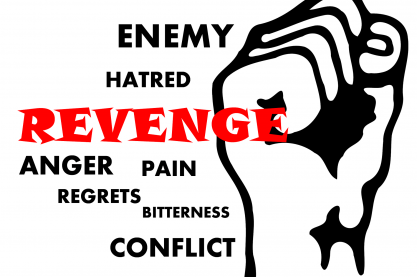When conversations flow
keywords:
conversational flow / fluency / need to belong / perceived consensus / synchrony
When conversations flow
We all know the awkward feeling when a conversation is suddenly disrupted by a brief silence. These moments can be pretty unsettling. Because people are generally so well-trained in having smooth conversations, any disruption of this flow indicates that something is wrong, either on an interpersonal level or on the level of consensus in a group. The question we aim to answer in this paper is: Why do we feel comfortable in conversations that have flow,... / more
When does revenge taste sweet? A short tale of revenge

keywords:
justice / punishment / retribution / revenge
When does revenge taste sweet? A short tale of revenge
 Most everyone is familiar with the saying “revenge tastes sweet”, but is there some truth in this? It is only recently that revenge, and the psychological and behavioral implications, have received any empirical attention. The aim of the present article is to provide an overview on the issue of revenge from a scientific perspective and to gain insight into the potential “functionality” that acts of ... / more
Most everyone is familiar with the saying “revenge tastes sweet”, but is there some truth in this? It is only recently that revenge, and the psychological and behavioral implications, have received any empirical attention. The aim of the present article is to provide an overview on the issue of revenge from a scientific perspective and to gain insight into the potential “functionality” that acts of ... / more
The victim wars: How competitive victimhood stymies reconciliation between conflicting groups
The victim wars: How competitive victimhood stymies reconciliation between conflicting groups
Ask an Israeli about the conflict with Palestinians and you'll probably hear a tale of woe and victimhood. The strange thing is, if you ask a Palestinian the same question, you'll most likely hear the same story. Since Israel became a nation in 1948, both Israelis and Palestinians have felt victimized. / more
Death and deities: A social cognitive perspective
keywords:
immortality / religion / terror management theory
Death and deities: A social cognitive perspective
The universality of religious belief—in supernatural agents: gods, ghosts, souls, spirits, and their ilk—is, no doubt, the product of a whole host of interacting causal factors. However, the notion that such beliefs are driven by fear of death recurs throughout intellectual history. Although recent social psychological research provides some support for this claim, the relationship between mortality-related concerns and religious belief becomes clearer in light of so-called “dual-process models”, which allow for both conscious and unconscious... / more
